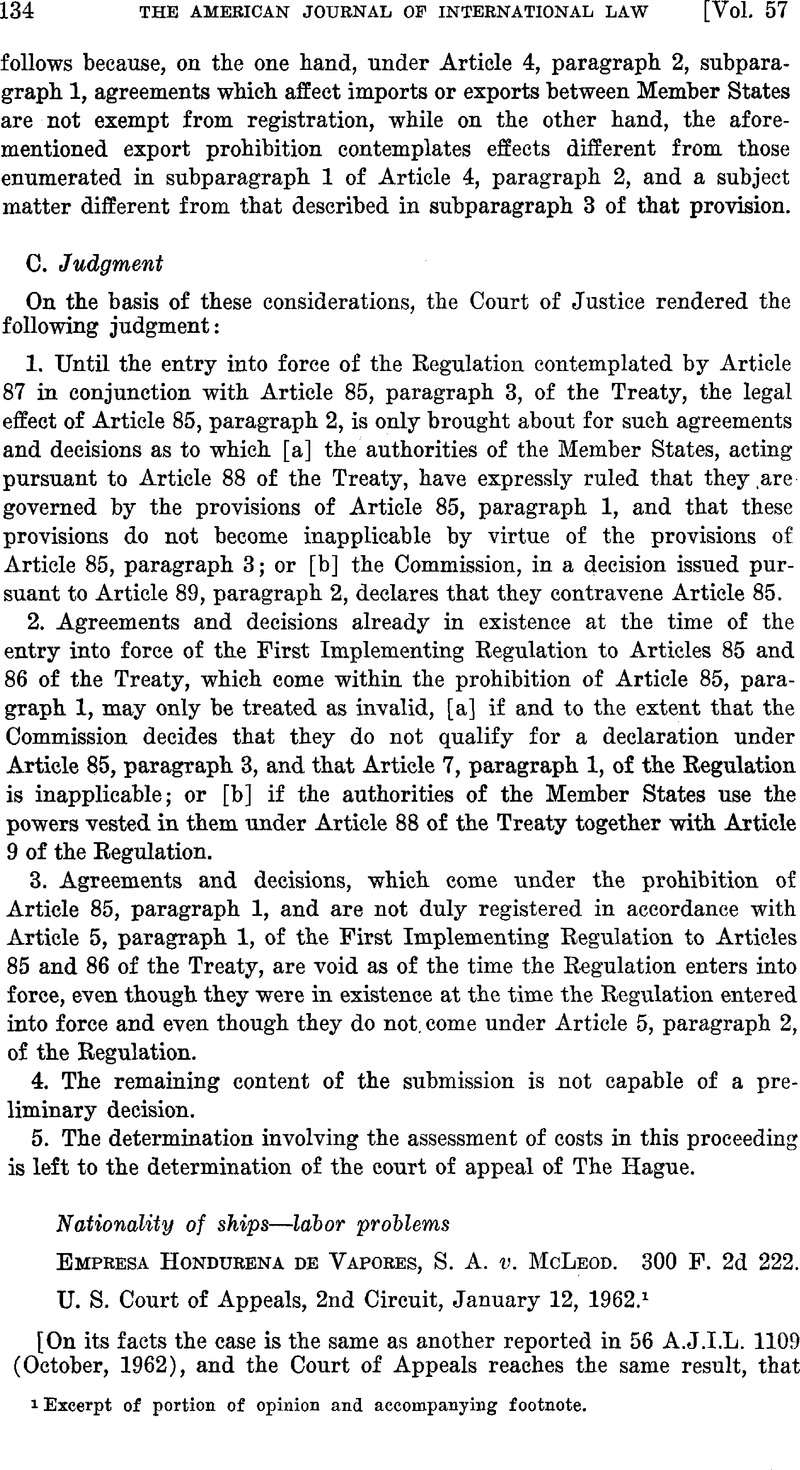No CrossRef data available.
Article contents
Empresa Hondurena de Vapores, S. A. v. McLeod
Published online by Cambridge University Press: 28 March 2017
Abstract

- Type
- Judicial Decisions
- Information
- Copyright
- Copyright © American Society of International Law 1963
References
1 Excerpt of portion of opinion and accompanying footnote.
14 “The “genuine link” requirement as adopted was less stringent than proposals made by such governments as the United Kingdom and the Netherlands and by the International Labor Conference, “which would have enabled states other than the flag state to withhold recognition of the national character of a ship if they considered that there was no ‘genuine link’ between the state and the ship.” Eeport of the Committee on Foreign Relations to the Senate, 106 Cong. Eec. 10382 (1960). The Senate was told that the effect of the language as adopted in Geneva is that “no state can claim the right to determine unilaterally that no genuine linkexists between a ship and the flag state,” but “Nevertheless, there is a possibility that a state, with respect to a particular ship, may assert before an agreed tribunal, such as the International Court of Justice, that no genuine link exists. In such event, it would be for the Court to decide whether or not a genuine link existed.” Id. [footnote by the Court.]




